EXERCISE - A
1) Which of the triangles whose sides are given are right-angled ?
a) 7cm, 24cm, 25cm.
b) 50cm, 80cm, 100cm.
c) 3cm, 8cm, 6cm.
d) 13cm, 12cm, 5cm.
e) 1.4cm, 4.8cm, 5cm.
f) 5,12,13.
g) 6,8,10
h) 24,10,26.
i) 8,15,17.
j) 9,10,11.
k) 9,10,41.
l) 36,15,39.
m) 16,63,65
2) The sides of two triangles are given below . Select the right angle triangle out of these
a) 6, 8 and 10
b) 12, 13 and 15
3) 14) If the sides of a triangle are in 3:4:5, Is the triangle is right angled triangle?
A
EXERCISE - B
1) Foot of a 10m long ladder leaning against a vertical wall is 6m away from the base of the wall. Find the height of the point on the wall where the top of the ladder reaches.
2) A guy attached a wire 24m long to a vertical pole of height 18m and has a stake attached to the other end. How far from the base of the pole should the stake be driven so that the wire will be taught?
3) If a ladder 10m long reaches a window 8m above the ground, then find the distance of the foot of the ladder from the base of the wall.
4) The foot of a ladder is at a distance of 8 m from the wall of a house and the top of the ladder is at the height of 15m from the ground. Find the length of the ladder .
5) A ladder 13m long reaches a window of a building 12 m above the ground. Determine the distance of the foot of the ladder from the building.
6) A man goes 15m due east and then 8m due North. How far is he from the starting point ?
7) A girl walks 200 towards East and then she walks 150m towards North. Find the distance of the girl from the starting point.
8) A 5m long ladder is placed leaning towards a vertical wall such that it reaches the wall at a point 4m high. If the foot of the ladder is moved 1.6m towards the wall, then find the distance by which the top of the ladder would slide upwards on the wall.
10) A ladder reaches a window 12m above the ground on one side of the street, keeping its foot at the same point, the ladder is turned to the other side of the street to reach a window 9m high. If the length of the ladder is 15m, then find the width of the street.
EXERCISE - C
1) Two poles of height 6m and 11m stand on a plane ground. If the distance between their feet is 12m, find the distance between their tops.
2) The heights of two vertical pillars are 7m and 12m. The distance between their feet is 12m. Find the distance between their tops.
3)
EXERCISE - D
1) ABC is an equilateral triangle of side 2a. Find each of its altitude.
2) 13) In a right angled triangle, if hypotenuse is 20cm and the ratio of the other two sides is 4:3, find the sides.
3) The hypotenuse of a right angled triangle is 6m more than twice the shortest side. If the third side is 2m less than the hypotenuse, find the sides of the triangle.
4) A right angled triangle has hypotenuse of length p cm and one side of length q cm. If p - q=1, find the length of the third side of the triangle.
5) If the sides of a rectangular plot are 15m and 8m, then find the length of its diagonal.
6) If a side of a rhombus is 10cm and one of the diagonals is 16cm, then find the length of the other diagonals.
EXERCISE - E
1) ABC is an isosceles with AB= AC= 12 and BC= 8cm. Find the altitude on BC and hence calculate its area.
2) Find the area and the perimeter of a square whose diagonals is 10cm long.
A) 50, 20 B) 50√2, 20 C) 50, 20√2 D) 50√2, 20√2
) In a rhombus, if diagonals are 30cm and 40cm, find its perimeter.
31) In ∆ ABC, BC= 12cm, CA=16cm and AB= 20 cm. Find the value of angle C.
21) In a ∆ABC, AB= 6√3, BC= 6 and AC= 12cm, then angle B is
32) In ∆ ABC, AD perpendicular to BC, AD= BD= 5cm, BC= 17cm. Find the value of AC.
Miscellaneous Exercise:
1) An aeroplane leaves an airport and flies due to North at a speed of 1000km per hour. At the same time, another aeroplane leaves the same airport and flies due to West at a speed of 1200 kmph. How far apart will be the two planes after 3/2 hours?
2) For going to a city B from city A, there is route via city C such that AC perpendicular to CB, AC= 2x km and CB = 2(x+7) km. It is proposed to construct a 26km highway which directly connects the two cities A and B. Find how much distance will be saved in reaching city B from city A after the construction of highway.
3) In ∆PQR PD perpendicular to QR, such that D lies on QR. If PQ= a, PR= b, QD= c and DR= d then find the value of (a+ b)(a - b).
4) In ∆ABC, AB= AC=x, BC= 10cm and the area of ∆ABC is 60cm². Find x.
5) In a triangle ABC, AD perpendicular to BC, AB= 25cm, AC = 17cm and AD= 15cm. Find the length of BC. 28cm
6) ∆ABC is a right angled triangle at B. Given that AB= 9cm, and AC = 15cm and D,E are the midpoint of the sides AB and AC respectively, Calculate
i) the length of BC.
ii) the area of ∆ADE.
7) In ∆ ABC is right angled at A. AD perpendicular to BC. If BC=1.25m, AB= 1m, Find AD.
DIAGRAMMATIC QUESTIONS:
8) In the following figure, ABC is a right angled triangle at B. AD and CE are the two median drawn from A and C respectively.
PROVE THE FOLLOWING:
1) ABC is a triangle in which Angle A=90° degree. AD Perpendicular to BC has been drawn .
2) In a ∆ ABC, AD perpendicular to BC. If AD²= BD x DC,
3) ABC is a right angled triangle in which C is a right angle. If p the length of Perpendicular from C on AB and AB = c, BC = a, CA = b,
a) pc = ab
b) 1/p² = 1/a² + 1/b².
4) Let O be any point inside the ∆ABC and let OD, OE, OF be perpendiculars to the sides BC, CA and AB respectively.
AF²+ BD²+ CE²= AE²+ CD²+ BF²
5) P and Q are the mid points of the sides CA and AB respectively of a ∆ ABC, right angled at C.
a) 4AQ² = 4AC² + BC².
b) 4BP² = 4BC²+ AC².
c) 4(AQ²+ BP²) = 5AB²
6) ABC is an isosceles triangle. The base BC is produced to D and D is joined to A.
7) ∆ ABC is an isosceles triangle in which AB = AC and BE perpendicular to AC.
a) BC²= 2AC . CE.
b) BE² - CE²= 2CE. AE.
8) ABC is a triangle in which B and C are acute angles. If BE perpendicular to AC and CF perpendicular to AB,
9) ABCD is a trapezium in which AB||CD.
10) ABC is an equilateral triangle in which the side BC has been trisected D.
11) In a ∆ ABC, angle B = 90° and D is the midpoint of BC.
12) ABC is a right angled triangle in which Angle B=90°. Let P and Q be any two points AB and BC respectively.

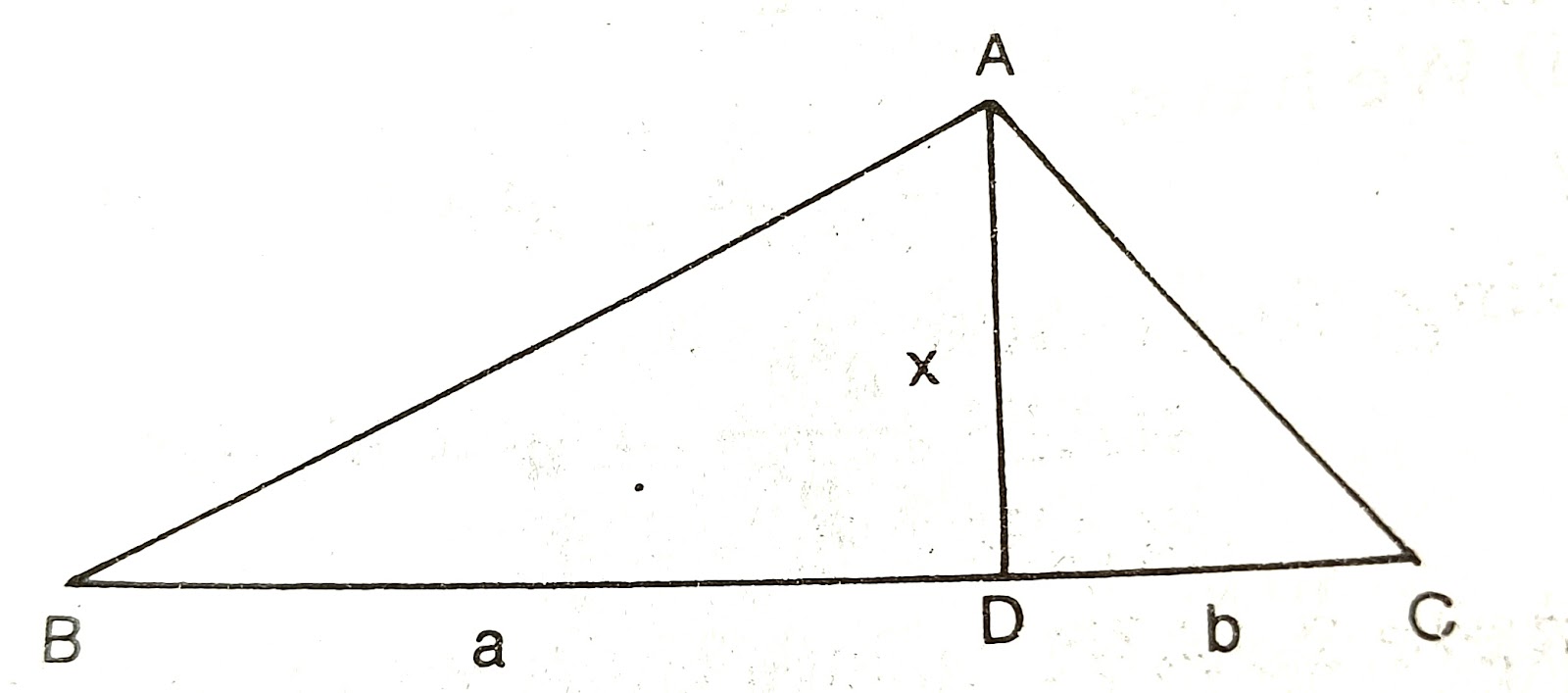


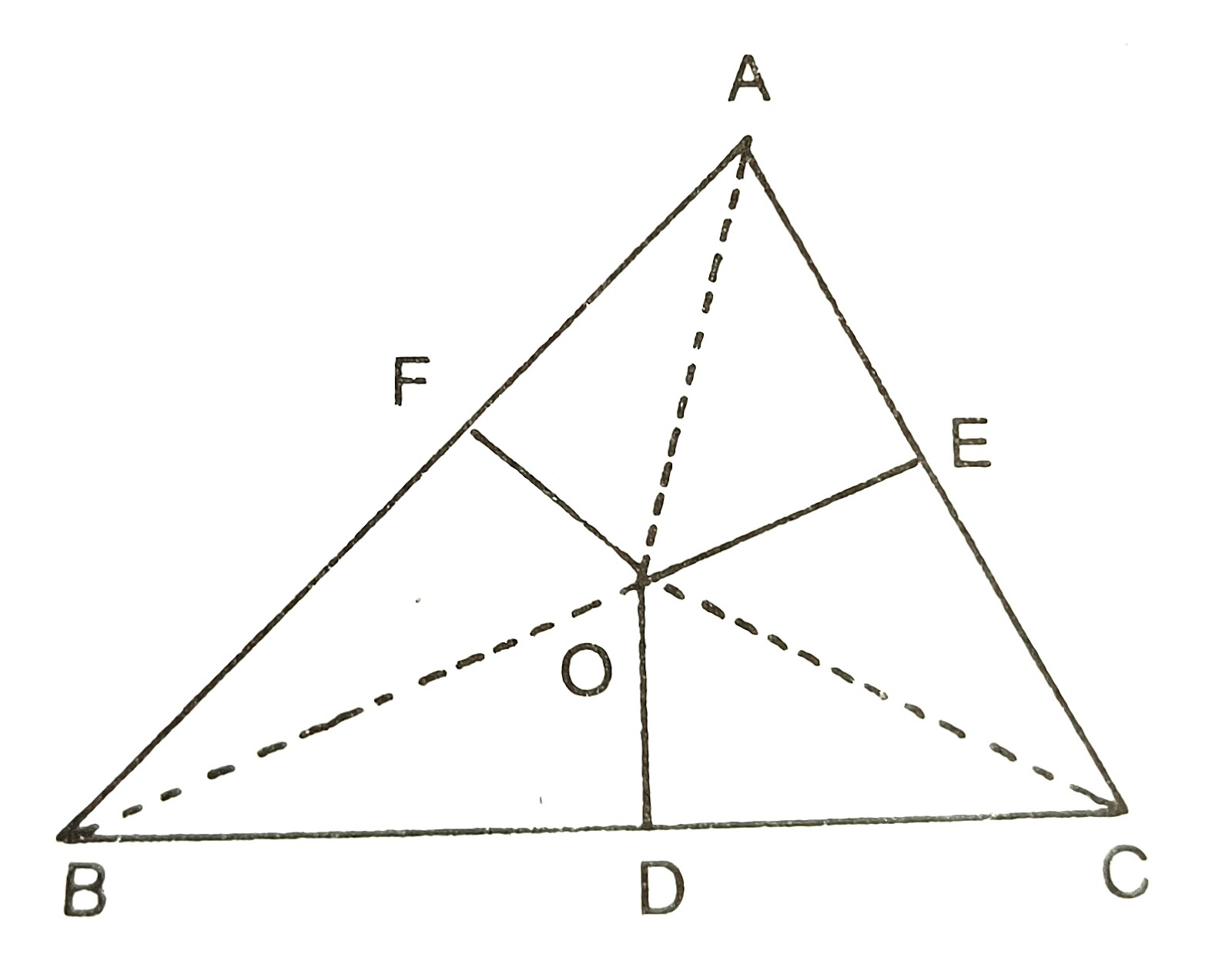

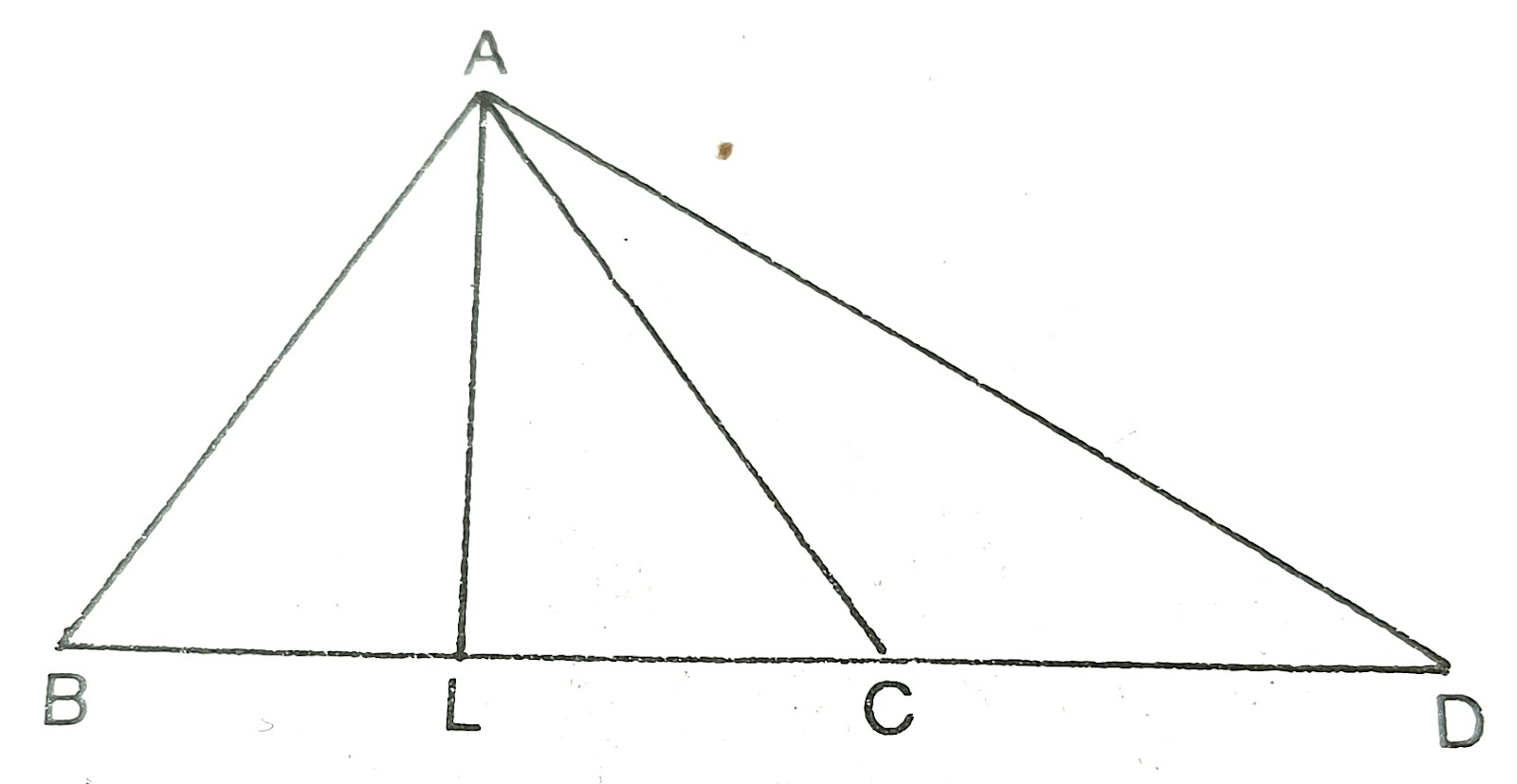


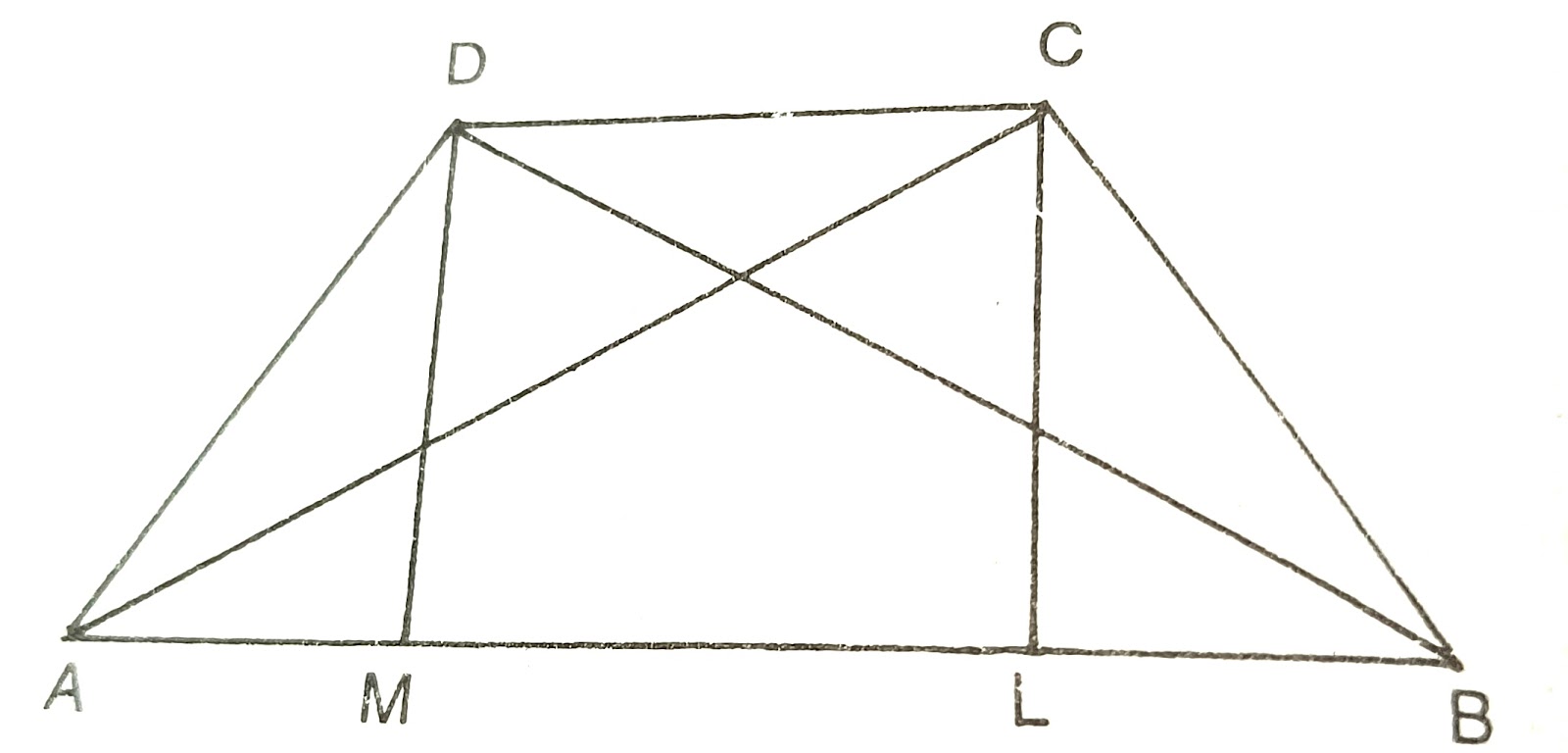


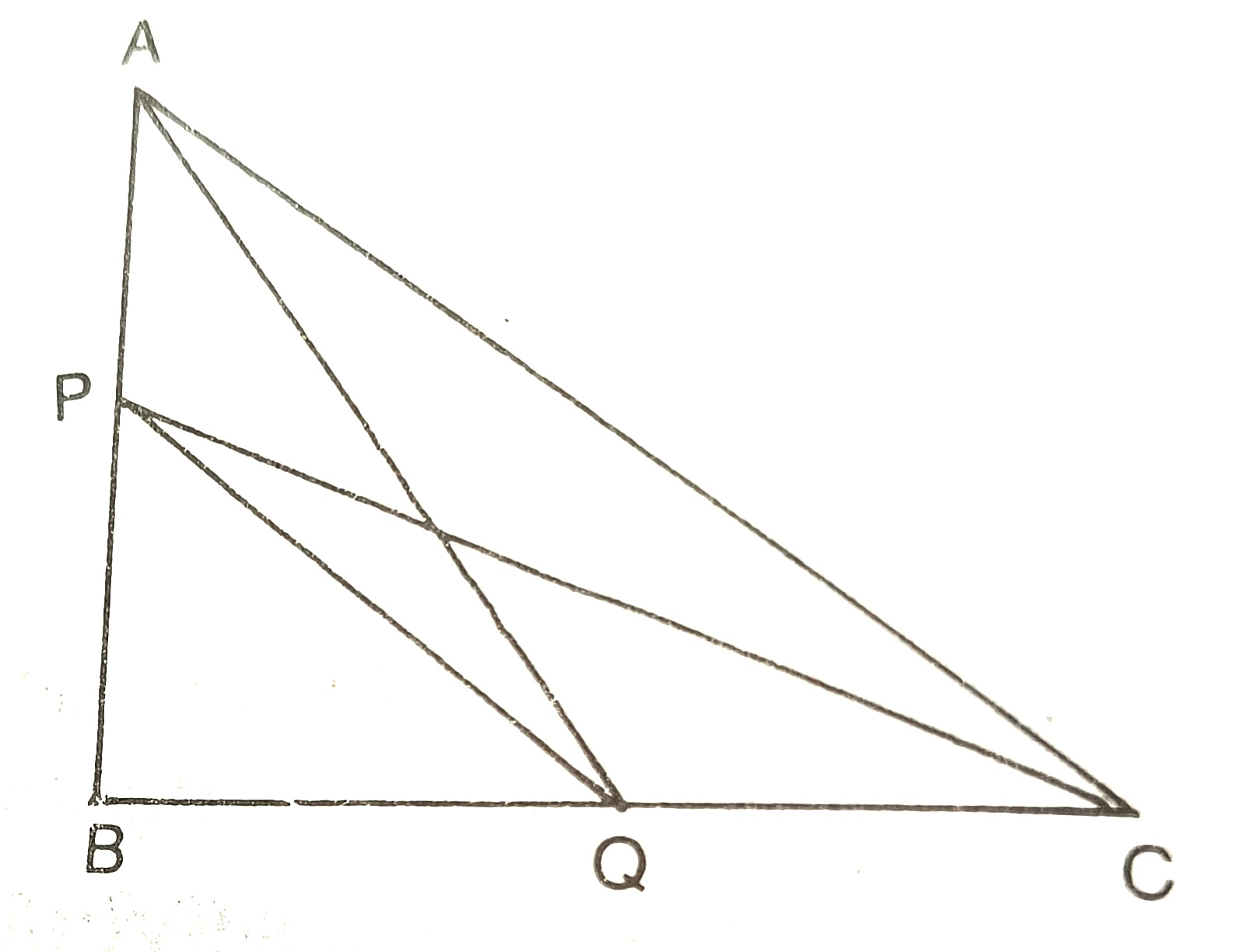
No comments:
Post a Comment